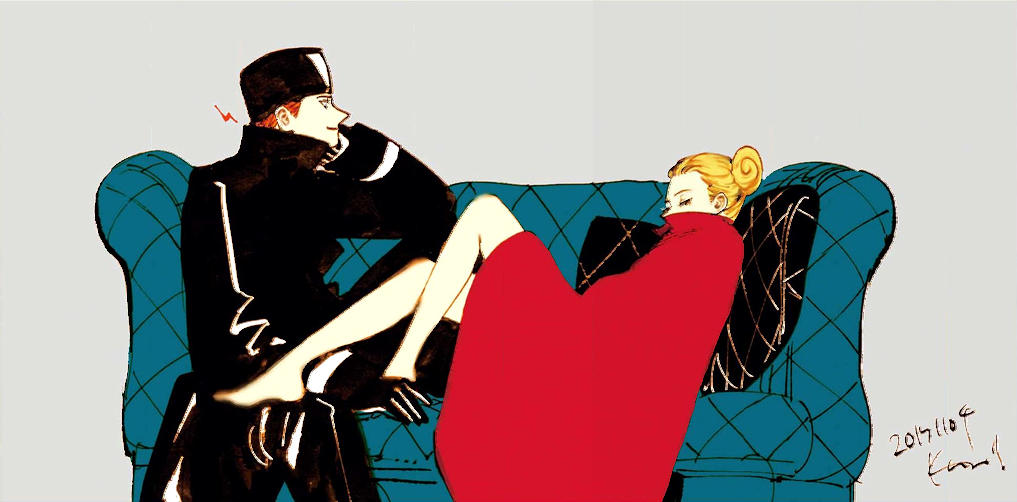Japanese Reading Report: 09 November 2025

- ファタモルガーナの館
- 少女革命ウテナ (第13-28話)
- 「選択肢」の選択史 (61-100ページ)
- Veil (第1巻)
ファタモルガーナの館
Sadly I wasn't able to play much of this in the week. It's been
a fairly busy week and I didn't fit the game in during my commute
because I was reading 『「選択肢」の選択史』(and later Veil) at
that time... I'm still trying to figure out the best way to balance
immersion with my work schedule.
The main plot point to note so far is just that Michel eventually
fell to one of his lowest points and then met Morgana for the first
time. She offered to curse anyone for him, but he refused. A long
time passed, but he continued to refuse her. It seems like she's
slowly wearing down his endurance, though.
At one point, Michel attempted to escape the house, but the
light of the sun seemed to burn his arm, so he rushed back inside
and shut the door.
Morgana explained that it's partially a reaction that's inside
his head, not a real physical reaction. And wouldn't you know it,
he had no physical burns on his skin.
少女革命ウテナ
I really enjoyed what I watched this week, though I am
considering dropping my "peak" appraisal given the current
arc (cars) feels a bit weak compared to the first two.
The "Black Rose" arc was easily my favourite part of the
anime. I absolutely loved every part of it. It leverages the
established cast and expands on their relationships apart from
Utena and Himemiya (except when relevant). The Black Rose represents
a lack of change, or stasis, which puts it at odds with Utena and
Himemiya's 革命の力, so it feels like a
very classic "light and dark" struggle. Most of the Black Rose users
were true side characters, and their respective episodes did a good
job fleshing out their struggles. The Wakaba, Shiori, and Kozue
episodes all stood out to me. Aesthetically I also just loved how
the weapons drawn from each victim was different and expressed some
subtle part of their personality.
I sort of think the reused assets in this anime are a concession for
making the rest of the show beautiful, but the repeated parts of this
arc were also really great. The elevator rides into
the depths exploring their negative emotions,
culminating in the sudden arrival at the crematorium and subsequent
possession, and then their newly-emboldened aggression towards their
victim — it was all extremely good. It also made me think about the lack of
consent in the action.
The Black Rose takes advantage of powerless people by giving them a
false sense of power that enables them to harm the people they love.
The only change I would make in
a dream scenario would be extending the episodes by 10 or 20 minutes.
I think some characters rushed their emotional nadir a bit too
quickly, and the sword fight with Utena at the end of each episode
was often too short for my taste. A bit more time for both ends of the story
would have been nice. Ah well...
On a side note, basically every Nanami episode has been absolutely
perfect. I particularly liked the
episode of her with the egg I watched towards the end of the week.
Perfect. No notes.
「選択肢」の選択史
This week I read about スマガスペシャル, a spinoff of
スマガ sort of follows from the original game, but also sort of
doesn't. The author, Vio, talked about how the game part of novel
games (visual novels) can be emphasised more when the story becomes
less relevant. スマガスペシャル apparently has quite
a lot of minigames to keep the concept fresh.
I also read the section on Steins;Gate. Vio didn't write
the whole game, but he was involved somewhat in its creation. One
of the big themes in this chapter was about micro-choices and
macro-choices. In Steins;Gate, there are sort of two major "endings"
your decisions lean towards — dystopian government or WW3 — but
there are also many small decisions that alter small parts of the
story, and particularly within the core friend group. Vio also
referred to the survival of "Heroine A" or "Heroine B" in this way,
implying that neither was really the "correct" decision. From what
I've heard of the game, I assumed that only one character's survival
is considered "canon", but Vio seems to annoyed at fans who
grapple for "canon" anyway, so he probably doesn't care.
Veil
I picked this up after hearing that the series uses entirely
handwritten Japanese in dialogue. I feel like my ability to recognise
characters is pretty good, but I tend to ignore small, handwritten
Japanese in margins, so I thought I should force myself to get over
my aversion.
The story is okay, but I wish it was more traditional. It's a romance
between a blind woman and a stoic, soft-spoken sort of guy. I'd describe it
as a real "woman's fantasy", but it definitely has something for
any reader. Unfortunately the "chapters" are plentiful and short,
meaning there isn't much arcing to the story. The prologue and longer
chapters are definitely the best parts.
The manga is also in full colour, and the art is gorgeous. I'd
definitely recommend it if you could find a physical version, or if
you just want to ogle some beautiful Eastern-Europeans, or if you want
to test your ability to read Japanese with the least friendly
"font" available.